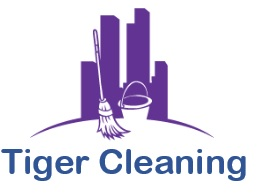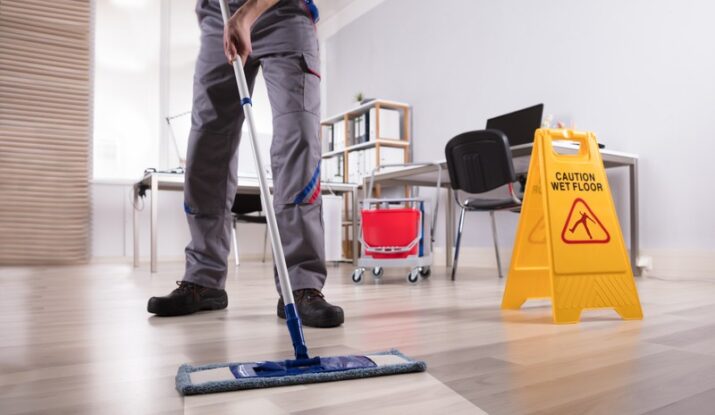In the bustling world of hospitality, first impressions are everything. The moment a guest steps into a hotel, the ambiance, decor, and, most importantly, cleanliness, play a crucial role in shaping their perception. This article explores the art of creating a spotless first impression through effective hotel cleaning services uk.
Understanding the Impact of Cleanliness
A. Psychological Impact on Guests
Cleanliness goes beyond aesthetics; it has a profound psychological impact on guests. A clean environment induces a sense of comfort and security, making guests feel more at ease during their stay.
B. Influence on Guest Reviews and Ratings
In the age of online reviews, a hotel’s cleanliness directly affects its reputation. Positive reviews praising cleanliness contribute to higher ratings, attracting more guests.
Key Areas in Hotel Cleaning
A. Lobby and Reception
The lobby is the first point of contact for guests. A pristine lobby and well-maintained reception area set a positive tone for the entire stay.
B. Guest Rooms and Bathrooms
Guest rooms must be immaculate. Paying special attention to bathrooms enhances guest satisfaction and ensures they have a comfortable and hygienic experience.
C. Common Areas and Amenities
From restaurants to gyms, cleanliness in common areas is essential. Guests expect a consistently clean environment throughout the hotel.
Choosing the Right Cleaning Products
A. Importance of Eco-friendly Products
In the era of environmental consciousness, using eco-friendly cleaning products not only promotes sustainability but also aligns with guests’ values.
B. Ensuring Safety for Guests and Staff
Selecting safe and effective cleaning products is paramount. Striking the right balance ensures both guests and staff are protected.
Training and Empowering Cleaning Staff
A. Importance of Thorough Training
Well-trained cleaning staff are essential for maintaining high cleanliness standards. Training should encompass attention to detail and time management.
B. Encouraging a Sense of Responsibility
Empowering cleaning staff with a sense of ownership fosters a proactive approach to maintaining cleanliness.
Implementing Efficient Cleaning Protocols
A. Daily Cleaning Routines
Establishing daily cleaning routines ensures that all areas of the hotel are consistently maintained, leaving no room for lapses.
B. Specialized Cleaning for Different Areas
Different areas require different cleaning approaches. Tailoring protocols to suit specific spaces maximizes efficiency.
Using Technology in Hotel Cleaning
A. Smart Cleaning Tools
Incorporating technology, such as robotic vacuum cleaners and smart sensors, enhances the efficiency and precision of cleaning processes.
B. Data-driven Cleaning Strategies
Utilizing data to analyze foot traffic and guest behaviors allows hotels to optimize cleaning schedules and resource allocation.
Ensuring Sustainability in Hotel Cleaning
A. Reducing Environmental Impact
Hotels can adopt sustainable practices, such as energy-efficient appliances and waste reduction, to minimize their environmental footprint.
B. Cost-effective Sustainable Practices
Sustainability can also be economically viable. Implementing cost-effective practices benefits both the environment and the hotel’s bottom line.
Overcoming Challenges in Hotel Cleaning
A. Dealing with High Traffic Areas
High traffic areas pose a challenge. Implementing frequent cleaning schedules and strategic placement of sanitation stations can mitigate these challenges.
B. Managing Unexpected Situations
From spills to accidents, unexpected situations require a quick and effective response. Preparedness is key to maintaining a clean and safe environment.
The Role of Professional Cleaning Services
A. Outsourcing vs. In-house Cleaning Teams
Hotels must weigh the pros and cons of outsourcing cleaning services versus maintaining an in-house team to determine the most effective approach.
B. Benefits of Professional Services
Professional cleaning services bring expertise and efficiency, often exceeding in-house capabilities. This can lead to higher cleanliness standards.
Maintaining Consistency in Cleaning Standards
A. Regular Assessments and Inspections
Regular assessments and inspections ensure that cleaning standards are consistently met. Immediate corrective actions can be taken when necessary.
B. Guest Feedback as a Tool for Improvement
Guest feedback is invaluable. Hotels can use feedback to identify areas for improvement and enhance their cleaning practices continually.
Case Studies: Success Stories in Hotel Cleaning
A. Examples of Hotels Excelling in Cleanliness
Highlighting case studies of hotels that excel in cleanliness serves as inspiration and provides practical insights for others in the industry.
B. Lessons Learned from Their Practices
Analyzing successful hotel cleaning practices provides valuable lessons that can be applied to enhance cleaning standards in other establishments.
The Future of Hotel Cleaning
A. Emerging Trends and Technologies
Exploring emerging trends and technologies in hotel cleaning prepares establishments for the future, ensuring they stay ahead of industry developments.
B. Adapting to Changing Guest Expectations
As guest expectations evolve, hotels must adapt their cleaning practices to meet new standards and maintain a competitive edge.
Tips for Small and Boutique Hotels
A. Maximizing Resources for Effective Cleaning
Small hotels can optimize their resources by focusing on high-impact areas, ensuring a clean and inviting atmosphere.
B. Personalizing Cleaning Approaches for Unique Spaces
Boutique hotels can differentiate themselves by tailoring cleaning approaches to match their unique ambiance, creating a memorable experience for guests.
Conclusion
In conclusion, the art of creating a spotless first impression through effective hotel cleaning services is a multifaceted endeavor. By understanding the psychological impact of cleanliness, implementing efficient protocols, and embracing technology, hotels can consistently provide a welcoming and hygienic environment.
FAQs
- How often should hotel rooms be cleaned?
- Hotel rooms should be cleaned daily, with extra attention to bathrooms and high-touch surfaces.
- What is the role of guest feedback in improving cleaning standards?
- Guest feedback is crucial for identifying areas of improvement and ensuring continuous enhancement of cleaning practices.
- Why is sustainability important in hotel cleaning?
- Sustainability not only benefits the environment but also aligns with the values of environmentally conscious guests, enhancing the hotel’s reputation.
- Is outsourcing cleaning services a better option for hotels?
- The decision between outsourcing and in-house cleaning teams depends on factors such as expertise, efficiency, and cost considerations.
- How can small hotels maintain high cleanliness standards with limited resources?
- Small hotels can focus on high-impact areas, prioritize cleanliness in guest rooms, and adopt cost-effective sustainable practices.

